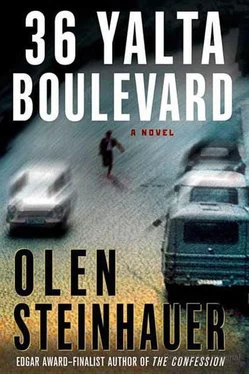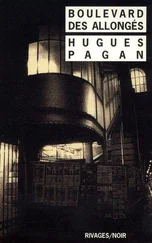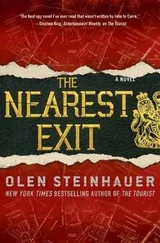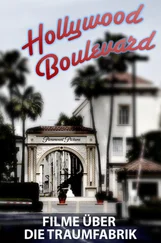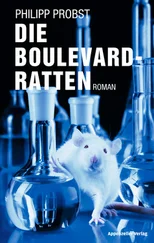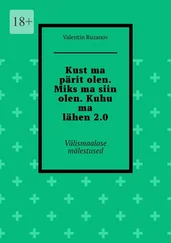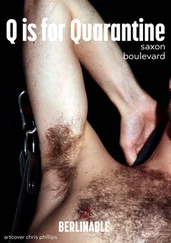Olen Steinhauer - 36 Yalta Boulevard
Здесь есть возможность читать онлайн «Olen Steinhauer - 36 Yalta Boulevard» весь текст электронной книги совершенно бесплатно (целиком полную версию без сокращений). В некоторых случаях можно слушать аудио, скачать через торрент в формате fb2 и присутствует краткое содержание. Жанр: Политический детектив, на английском языке. Описание произведения, (предисловие) а так же отзывы посетителей доступны на портале библиотеки ЛибКат.
- Название:36 Yalta Boulevard
- Автор:
- Жанр:
- Год:неизвестен
- ISBN:нет данных
- Рейтинг книги:3 / 5. Голосов: 1
-
Избранное:Добавить в избранное
- Отзывы:
-
Ваша оценка:
- 60
- 1
- 2
- 3
- 4
- 5
36 Yalta Boulevard: краткое содержание, описание и аннотация
Предлагаем к чтению аннотацию, описание, краткое содержание или предисловие (зависит от того, что написал сам автор книги «36 Yalta Boulevard»). Если вы не нашли необходимую информацию о книге — напишите в комментариях, мы постараемся отыскать её.
36 Yalta Boulevard — читать онлайн бесплатно полную книгу (весь текст) целиком
Ниже представлен текст книги, разбитый по страницам. Система сохранения места последней прочитанной страницы, позволяет с удобством читать онлайн бесплатно книгу «36 Yalta Boulevard», без необходимости каждый раз заново искать на чём Вы остановились. Поставьте закладку, и сможете в любой момент перейти на страницу, на которой закончили чтение.
Интервал:
Закладка:
He noticed that on her forehead, between her eyes, was a smear of soot. He kissed her cheeks again. “I’m just taking a vacation. It’s all right to stay here?”
“How can you even ask? It’s not every day I have my son here. Or every year, for that matter.” She tried to take his suitcase, but he wouldn’t let her. “Get those to your room and I’ll make something to eat. You must be hungry.”
He tilted his head from side to side.
“Of course you are. I’ll heat some soup.”
“You’ve got a spot,” he said, touching his own forehead.
She opened her mouth, blushing. “Oh yes, yes.” She wiped the spot with a thumb and looked at her dirty print. “If I had an electric stove, I’d be a lot cleaner.”
It could not really be called “his” room anymore. All personal effects-the toy oxcart with the broken wheel, the rotary board game, and even the set of French metal skiers with little metal skis and sleds-had been removed long ago, and his younger sister, Klara, had taken her possessions to her own home on the outskirts of Bobrka. A group of framed photographs hung on the wall in a loose pastiche of half-forgotten faces. Uncles and distant cousins who were killed in the war, and their wives, who had remarried or stuck out the following years in solitude. A group shot of his mother’s family from the ’teens, faces serious, as befitted the weight of such a sitting. Brano was also there, at two, and at six years old, with curls that made him look uncomfortably like a girl; Klara as a nine-year-old had the same intense features she had carried into adulthood. In the center, a larger portrait of his father-his Tati-stood sentry over the others. It had been taken during the war, a young man’s face with too many worry lines sprouting from his eyes. His mouth was open, revealing the chipped front tooth Brano always imagined when he tried to remember the face of Andrezej Fedor Sev.
He sat on the edge of the bed, gazing at that tooth. The man was probably dead now, one tiny fraction of the endless stream of refugees who made their way west after the war. But this man had been ordered to leave, by his son, on a frigid October night.
Brano wiped his palms dry on his knees.
It was not his room anymore. It had become a home for guests. A guest room, and he was a guest. He put the suitcase into the wardrobe.
Her forehead was clean and the cards cleared away. She was heating pork stew in an iron pot and toasting bread. He asked her about the store. “Well, you know. Eugen is a good boy, but I don’t need him. I could do all the work myself. It’s a small place. But the State wants two employees, and who am I to argue?”
“You could bring it up at a council meeting.”
“Do you think that would help?”
“The State can’t know things unless it’s told.”
She hummed beneath her breath and stirred the fragrant soup. She added a spoonful of fat from the pail and let it cook a little more before ladling it into a bowl and collecting the toast. She poured him a glass of brandy and seemed pleased just to watch him eat.
He told her a few necessary details about the Pidkora factory and spent more time describing new construction in the Capital and everything that was changing. “The metro was a fantastic success.”
“That’s a good thing,” she said.
“When you travel you see the entire cross-section of the city-Gypsies and workers and university professors riding side by side.”
“And Politburo men?”
“Mother.”
“I’m only asking.”
He finished eating and sipped the warm brandy. She poured herself one and refilled his.
“And what about your personal life, Brani? Do you have friends? Any women you’d like your mother to meet?”
He hesitated. “No, no women.”
“You’re not so young anymore.”
“I’m aware of that.”
“And when you reach a certain age you’ll kick yourself for not having a wife.”
“It’s possible.”
“Maybe we can find you a nice girl around here.”
“No. Mother, don’t try that.”
“If you’re not going to be sensible, then I’ll have to be sensible for you.”
“Mother.”
She finished her glass. “What, son-of-mine?”
“I’m quite happy with my life.”
“Nonsense. No one is happy with their life. Your Tati used to say that all the time, and he knew what he was talking about.”
He stared at his drink until she let the subject go. She went on to other matters, and by eleven had told him all about the happenings in Bobrka. Alina Winieckim and Gerik Gargas had died in the last six months, the first of encephalitis, the other in a gory drilling accident. Alina’s husband, Lubomir, got a permit to move to the Capital-“Did you hear from him? I gave him your phone number.” Brano hadn’t. “Always unsociable, Lubomir. Always…” She twisted an index finger against her temple to signify insanity, then told him that the entire Ulanowicz clan had moved to Uzhorod.
Brano rubbed his eyes.
But there was good news as well, she told him. Wincet and Kalena Szybalski had gotten married after only a three-week courtship (though Kalena’s soon-swelling belly made the reason clear enough). Also married were Piotr and Jolanta, and Augustyn and Olesia. “There’s love in the air,” she said. “Maybe you’ll smell it, too.” Krystyna Knippelberg was seven months pregnant with her sixth. “You should see how ecstatic she is. But who wants six children? All she really wants is one of those Motherhood Medals, it’s obvious.”
“Is that so bad?”
“It’s bad when you can’t feed the five children you’ve got. Krystyna will have to send one off to the orphanage, mark my words.”
The most spectacular news, however, of Jan Soroka’s mysterious appearance did not cross her lips.
“And what about my sister?”
She yawned into the back of her hand, then took the bottle to refill his glass, stopping when she saw it hadn’t been touched. “Klara is doing well. Oh, very well. She and Lucjan are as happy as you can imagine. No children, though I talk to her.” She drank her brandy and put her chin in her hand. “Maybe Lucjan is seedless. You can’t blame a man for that, but I would like some grandchildren before I’m dead. Klara’s not my only child, though.”
“Maybe.”
“You see?” she said as she got up. “It’s not just in the Capital that interesting things happen.”
She kissed him good night and left the brandy out, but he didn’t drink any more. He sipped tap water and read Colonel Cerny’s copy of Kurier. In a long column called “An Eye into the Other Side,” Filip Lutz told of his own interrogation in 1961, a year before he escaped through Prague to the West. He said that the brutal treatment he received at the hands of the Ministry for State Security was the sure sign of a paranoiac society in the advanced stages of collapse. He gave the regime three years at most.
When the words began to blur, he went to the bedroom, undressed and folded his clothes, then climbed into the cold bed.
Brano was not the kind of man who liked to recall his youth, preferring to forget that time of zbrka — Dijana Frankovic’s word for “the confusion of too many thing.” Before and during the war, he had stumbled through the stages leading to adulthood with his loud friend, Marek. The road to adulthood had been so clumsy and hesitant that even at the end of that life he was still unsure what to call himself. But after sending away his father, the zbrka dissipated. He was Brano Oleksy Sev, first a private, and then a sergeant, a captain, a lieutenant, a major. Then a factory worker. Now, he was neither an officer nor a worker but something undefined, lying in this cold room in the north of the country, where he always found the childhood zbrka waiting patiently for him.
Читать дальшеИнтервал:
Закладка:
Похожие книги на «36 Yalta Boulevard»
Представляем Вашему вниманию похожие книги на «36 Yalta Boulevard» списком для выбора. Мы отобрали схожую по названию и смыслу литературу в надежде предоставить читателям больше вариантов отыскать новые, интересные, ещё непрочитанные произведения.
Обсуждение, отзывы о книге «36 Yalta Boulevard» и просто собственные мнения читателей. Оставьте ваши комментарии, напишите, что Вы думаете о произведении, его смысле или главных героях. Укажите что конкретно понравилось, а что нет, и почему Вы так считаете.
